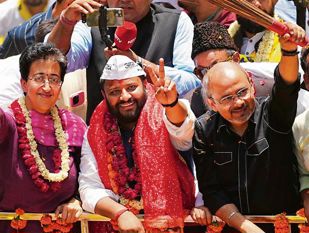With the Union government planning to implement the long awaited Goods and Service Tax (GST) system on July 1, the reaction to the present structure of the GST by the industrialists and businessmen is a mixed one. Gagandeep Singh speaks to a cross-section of them to seek their views on the new tax structure.
As a representative of the Jalandhar Chamber of Industries and Commerce, I appreciate this daring step to introduce and implement the GST. The uniform tax system (GST) will help avoid unhealthy competition. Moreover, unaccounted for business will not be possible and market prices will go down because all taxes like Central excise, CST, VAT, entry tax and octroi will be abolished. But due to lack of awareness and proper publicity regarding the GST, small traders have stopped purchasing material from the industry, forcing a decline in production. Meanwhile, the government must implement the GST by July 1. If it is postponed to November 1, business will stop and it will affect the Indian economy adversely. — Charanjit Maingi, Industrialist
There are many loopholes in the present structure of the GST. It has not been constituted properly. The government calculated on its own without taking the traders and industrialists into confidence. No businessman was consulted on the GST. Suggestions were sought from the community before the VAT was implemented. A majority of the business community is not happy with present structure of the GST. However, they are going to hold a meeting on June 16 to discuss further measures. — Gursharan Singh, Industrialist
Under the present taxation system, input tax credit (ITC) is not available for many capital goods. ITC is available mainly for machinery to be used for manufacturing purposes only. But under the GST, full input tax credit is available for many capital goods. It will result in a drop in the cost of capital goods and a rise in capital goods investment. Small and medium-scale industry is likely to be hit the most initially. Under the existing excise tax, no duty is paid by a manufacturer having a turnover of less than Rs 1.50 crore. But under the GST, the exemption limit has been significantly lowered to Rs 20 lakh which means tens of thousands of MSMEs will come under the tax net. — Sanjeev Juneja, Convener, Jalandhar Chapter, PHD Chamber of Commerce and Industry



























